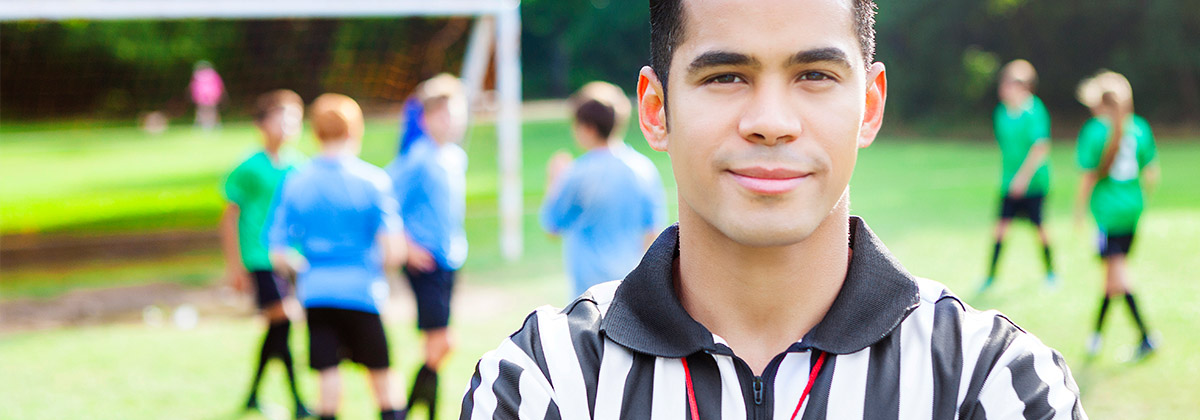The Situation in Canada
There are well over 600,000 across Canada at local, regional, provincial, national and international events. They often blend into the background, but without them quality sport competitions would not be possible. They are often volunteers who are committed to impartiality and work hard under variable conditions with little opportunity for material rewards. The sport system certainly wouldn’t be the same, and likely wouldn’t exist, without them.
Many volunteers initially became officials in order to contribute their time towards the sport their child is engaged in, while others may have other reasons such as a simple love for the game. Regardless of how they became involved, they all usually end up developing a special camaraderie with other officials that often remains long after their children have moved on with their athletic careers. For many officials, love for the game is an intrinsic motivator. Many do it to “give back to the sport” or to challenge themselves. Financial remuneration is a secondary concern, particularly in the early years of an officiating career. It’s passion that keeps these officials involved in the first place.
To operate effectively, officials need to be respected and need to be above reproach in their conduct. This is why their certification process is so important. Officials progress from beginner through to international rankings from Level I to V, National Technical Official, Area Technical Official and International Technical Official. At whatever level they’re operating at, they must be consistent in the application of international rules.
How Sport for Life Supports Officials
The recruitment, development and retention of officials must be built into the long-term planning of every sport organization. These organizations need to ensure that officials are provided with a positive and supportive environment, while ensuring that their development is aligned with the sport’s Athlete Development Matrix and developmentally appropriate competition structure. Ultimately, the goal is to introduce quality sport ideals into every aspect of the experience.
We believe that not only do officials need to know the rules of the game for the stage of athlete that they are officiating, it is also beneficial to understand more about the social/emotional and psychological characteristics of athletes in competition. A holistic approach to serving as an official will ensure that the rules are applied evenly, and the interactions with players are positive and respectful.
We’ve identified three aspects of educating and developing officials: Good Programs, Good People, Good Places. This is all part of our Long-Term Officials Development resource. Lots is happening in this area and we all must continue to work toward creating welcoming and supportive environments for officials to ensure that they also have a positive sport experience, resulting in retention and job satisfaction.

